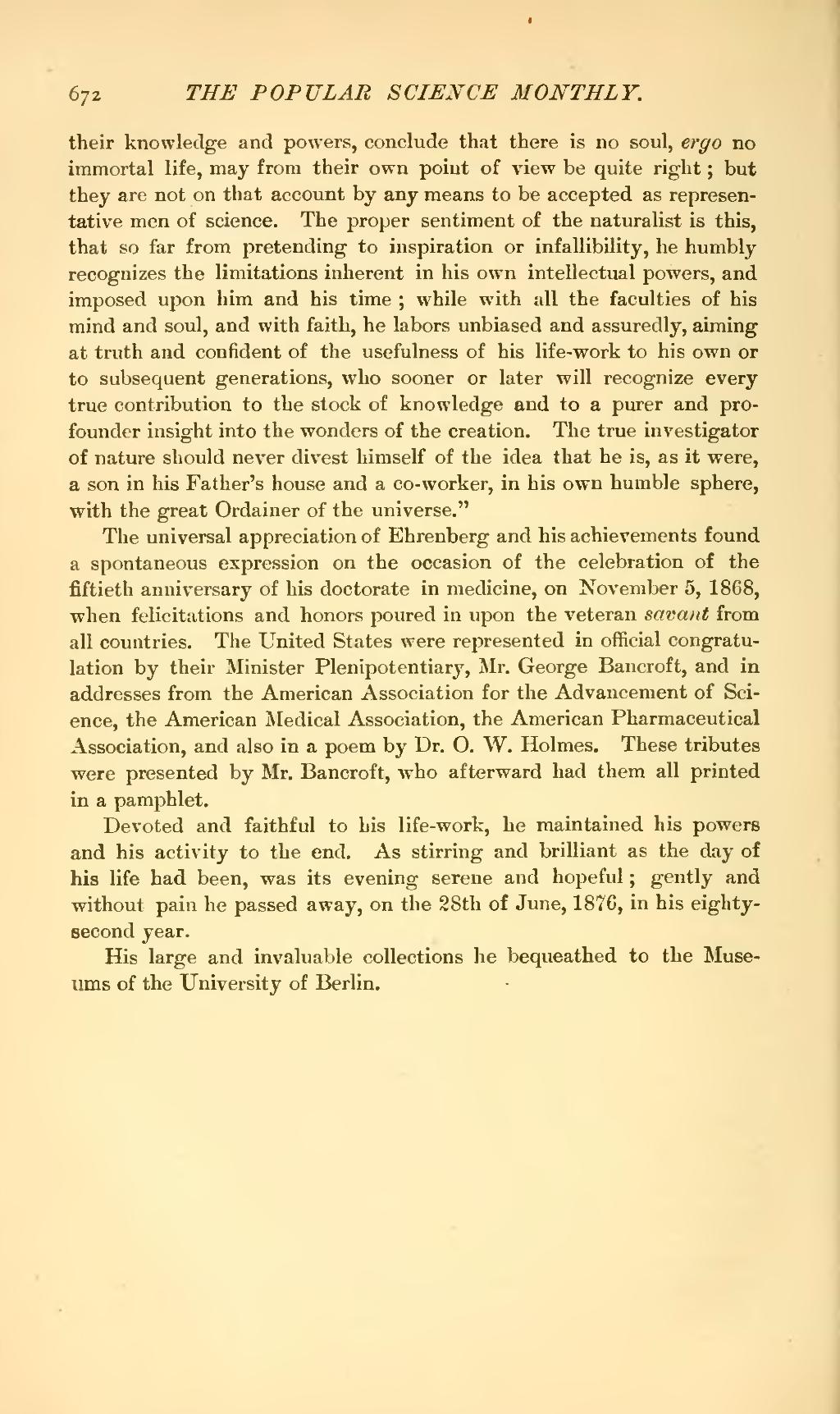their knowledge and powers, conclude that there is no soul, ergo no immortal life, may from their own point of view be quite right; but they are not on that account by any means to be accepted as representative men of science. The proper sentiment of the naturalist is this, that so far from pretending to inspiration or infallibility, he humbly recognizes the limitations inherent in his own intellectual powers, and imposed upon him and his time; while with all the faculties of his mind and soul, and with faith, he labors unbiased and assuredly, aiming at truth and confident of the usefulness of his life-work to his own or to subsequent generations, who sooner or later will recognize every true contribution to the stock of knowledge and to a purer and profounder insight into the wonders of the creation. The true investigator of nature should never divest himself of the idea that he is, as it were, a son in his Father's house and a co-worker, in his own humble sphere, with the great Ordainer of the universe."
The universal appreciation of Ehrenberg and his achievements found a spontaneous expression on the occasion of the celebration of the fiftieth anniversary of his doctorate in medicine, on November 5, 1868, when felicitations and honors poured in upon the veteran savant from all countries. The United States were represented in official congratulation by their Minister Plenipotentiary, Mr. George Bancroft, and in addresses from the American Association for the Advancement of Science, the American Medical Association, the American Pharmaceutical Association, and also in a poem by Dr. O. W. Holmes. These tributes were presented by Mr. Bancroft, who afterward had them all printed in a pamphlet.
Devoted and faithful to his life-work, he maintained his powers and his activity to the end. As stirring and brilliant as the day of his life had been, was its evening serene and hopeful; gently and without pain he passed away, on the 28th of June, 1876, in his eighty-second year.
His large and invaluable collections he bequeathed to the Museums of the University of Berlin.

